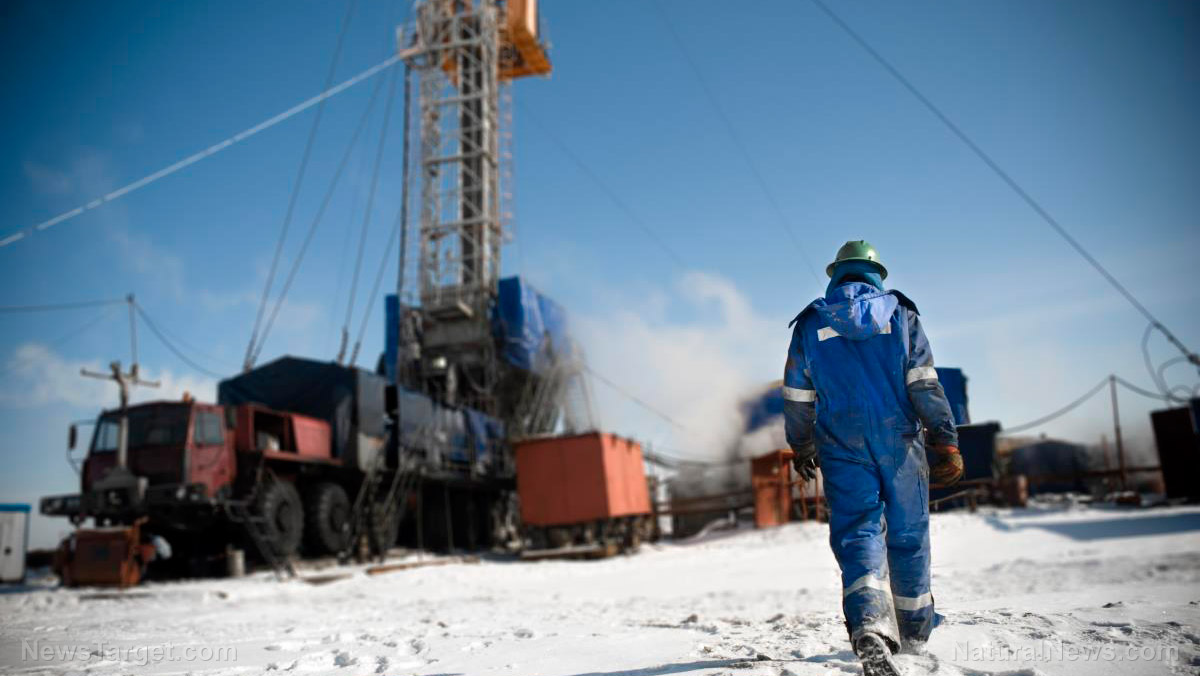Global campaign for fossil fuel divestment will INCREASE carbon emissions, warns expert
03/28/2021 / By Cassie B.

A campaign aimed at encouraging individuals and organizations around the world to sell off their investments in fossil fuel companies in hopes of lowering carbon emissions could end up having the opposite effect, experts have warned.
On the surface, the idea of divestment might seem to make sense to those concerned about carbon emissions, with fossil fuel companies unquestionably contributing to the carbon dioxide emissions some blame for global warming. According to The Guardian, 20 fossil fuel companies are behind 35 percent of the energy-related CO2 and methane emissions on our planet since 1965. It is believed that pulling investments from such companies could cause them to change their business model dramatically in order to stay afloat. Moreover, investors could avoid the risk of having stranded assets by divesting.
This logic, experts say, holds water when considering companies that are heavily invested in coal, one of the most polluting fossil fuels. Places like China and India may still be constructing coal plants, but experts have predicted its contribution to the global energy supply will drop steeply in the coming years. The availability of cleaner alternatives means coal is not the safe long-term investment it once was.
However, when it comes to natural gas and oil, the argument starts to fall apart. The divestment movement is aimed at private international oil companies (IOCs) that are listed on public stock exchanges and headquartered in Western countries, such as BP, Total, and Royal Dutch Shell. And although divestment could theoretically reduce these firms’ economic power, it is important to keep in mind that such companies only produce around a tenth of the world’s oil.
The rest comes largely from national oil companies, or NOCs, such as China National Petroleum Corporation, Petroleos de Venezuela, Saudi Aramco and the National Iranian Oil Company. These firms are less transparent about how they operate than IOCs and many are headquartered in countries that are under authoritarian rule, which means there is less pressure and scrutiny on them.
Giving power to the wrong parties
Divestment pressures are therefore unlikely to influence the business plans of NOCs. All the divestment movement might end up accomplishing is forcing IOCs to cede their market share to NOCs as the global demand for oil and natural gas continue to rise and investments fail to meet future demand. This would have the effect of causing CO2 emissions to climb rather than drop as the carbon footprints of NOCs for each unit of fuel produced are greater than those of IOCs, on average.
It is also worth noting that IOCs tend to be more open to reducing their carbon intensity and supporting a transition to renewable energy than NOCs.
Does anyone really want to see the world’s fossil fuel supplies being transferred to companies that are less transparent, less vulnerable to pressures from society, and more polluting than the ones currently leading the market?
Some experts suggest that a better approach would be implementing regulations forcing IOCs and NOCs alike to focus more resources on renewables, such as by getting rid of subsidies for fossil fuels and putting a price on carbon. Improving energy-efficiency in transport, housing and industry could also reduce the need for fossil fuels.
Like many climate movements, fossil fuel divestment is not going to have the effect that proponents believe it will. It’s also based on the premise that carbon dioxide is bad, which completely ignores the fact that CO2 is what keeps life going on our planet and that none of us would be here without it.
Sources for this article include:
Tagged Under: carbon dioxide, climate change, CO2, economy, energy, environ, fossil fuels, power, power grid, renewable energy
RECENT NEWS & ARTICLES
NewEnergyReport.com is a fact-based public education website published by New Energy Report Features, LLC.
All content copyright © 2018 by New Energy Report Features, LLC.
Contact Us with Tips or Corrections
All trademarks, registered trademarks and servicemarks mentioned on this site are the property of their respective owners.




















